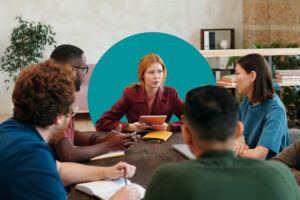
About the Panel
In a season once defined by sunshine and rest, summer in British Columbia now brings an ever-present reminder of the climate crisis: wildfires that threaten landscapes, communities, infrastructure, and learning environments alike. As these climate disasters become more deadly, how can B.C.’s post-secondary institutions respond swiftly, compassionately, and effectively?
Join us for a timely panel discussion exploring how the sector can better prepare for, adapt to, and respond during times of crisis. From evacuation orders and connectivity disruptions to student displacement and mental health challenges, our panelists will examine the real and present impacts of climate-related emergencies on learners, faculty, and staff.
We will explore questions such as:
- How can institutions ensure academic continuity when disaster strikes?
- What does meaningful flexibility look like in a time of crisis?
- How do we support students, especially those already facing barriers, in continuing their studies under extraordinary circumstances?
- What role do collaboration, preparedness, and trauma-informed practices play in institutional resilience?
Join in the conversation! There will be an opportunity for audience members to ask anonymous questions upon registration.
Whether you’re an educator, administrator, or policymaker, this 90 minute virtual gathering will offer practical considerations and sector-wide reflections on leading with care in an increasingly unpredictable world.
Register Now!
This notice is to inform you that this session will be recorded, archived, and shared after the event. By participating in this session, you acknowledge that your participation will be recorded and the recording will be made available publicly.
About the Panelists
Dr. Alisha David (she/her) is a post-secondary educator, researcher, and lifelong learner who believes in the power of story to transform teaching and learning. Over the past decade, she has held a range of roles in education, from educational assistant to classroom teacher, and she currently works as a full-time college instructor. Her practice and perspective have been deeply shaped by her years living and working in Treaty 8 territory, the ancestral and traditional lands of the Cree, Dene, and Métis peoples. Witnessing the environmental loss of this region has informed her research focus on disaster-induced loss and its implications for adult education. Alisha’s work explores how disruption and grief shape learning and how educators can respond with empathy and foster resilience.
Dr. Bala Nikku is an Associate Professor of Social Work at the Faculty of Education and Social Work, Thompson Rivers University. He is a racialized immigrant to Canada from the Global South and brings a rich background as a social work teacher, scholar, and practitioner. In this panel, Bala will share his insights on disaster social work, how he teaches it, and how he strives to make the classroom a sanctuary for learning. How can we turn vulnerabilities and risks associated with disasters into opportunities for learning, hope, curiosity, and resilience? For Bala, resilience is not about suppressing emotions or merely surviving or bouncing back, but about embracing moments of vulnerability as a source of action, strength, and wisdom.
Christy Foote (she/her) is the Events Manager at BCcampus. She is an experienced event planner with a background in interior design, known for creating inclusive and engaging experiences. With a focus on accessibility, safety, and community connection, Christy brings both creativity and care to every event she leads. Outside of work, Christy is a competitive fastball player and an avid world traveler, always seeking connection—whether on the field or across the globe.
Dr. Theresa Southam (she/her) completed her PhD in Human and Organizational Development in 2020. She is the Department Head of the Teaching and Learning Centre at Selkirk College and a 2025-26 Fielding ISI Fellow. With a long career in environmental communication, Theresa considers her life’s work to be the conservation of thousands of hectares of wetlands. She previously worked with the Federal Department of Fisheries and Oceans, where she coordinated a network of community educators reaching over 10,000 children. She is the author of Driving Social Innovation: How Unexpected Leadership is Transforming Society (2022) and Transforming Trauma through Social Change: A Guide for Educators (2024). More about her work can be found on her website.
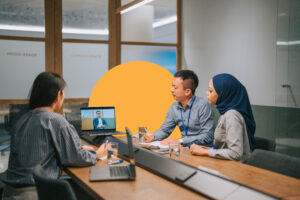
Event Description
In this interactive two-hour workshop, participants will be guided through the power and practice of reflection in action; a critical tool for deep learning, self-awareness, and both personal and professional growth.
Participants will explore:
- Why reflection matters: Understanding its role in learning, decision-making, and personal development.
- Effective prompts: How to craft and use reflective prompts to foster deeper insights.
- Ways to engage: How participants can respond to reflection prompts in different formats.
- Creative reflection activities: Engaging, hands-on exercises designed to bring reflection to life.
Through experiential learning, attendees will participate in various reflective exercises, gaining practical tools and strategies to integrate into their teaching, learning, and daily practices.
Register Now!
This session will not be recorded.
About the Facilitator
Your FLO Facilitators for this workshop will be Leva Lee and Helena Prins.
Leva Lee (she/her) is a Learning + Teaching Advisor at BCcampus. With a background in open learning, learning design, and educational technology, she has many years of experience designing online courses, resources, and offerings for the B.C. secondary and post-secondary educator communities.
Helena Prins (she/her) is a Learning + Teaching Advisor at BCcampus, where she coordinates the Facilitating Learning Online (FLO) portfolio. She began her career as a high school teacher in South Africa. Over the past 20 years, she has taught students of all ages and stages on four continents. A golden thread throughout her career has been breaking down barriers to learning.
Session Description
Web accessibility means making sure everyone can use your website, including people with disabilities. This brief session will introduce the basics of digital accessibility and the Web Content Accessibility Guidelines (WCAG). We’ll cover common issues that make websites inaccessible and how this impacts real users. Participants will leave with a clearer understanding of what digital accessibility is and why it is essential.
Learning Outcomes
- Understand the purpose of the Website Content Accessibility Guidelines (WCAG)
- Analyze audience needs and understand diverse user experiences, including that of people with disabilities
- Learn about common issues that make websites inaccessible
- Identify potential website barriers and explore actionable ways to improve accessibility
Schedule
- Introductions and access information – 2 minutes
- Key definitions – 5 minutes
- Overview of the WCAG and common inaccessibility issues – 10 minutes
- Understanding your audience – 5 minutes
- Actionable items – 3 minutes
- Q+A – 5 minutes
Register Now!
This notice is to inform you that this session will be recorded, archived, and shared after the event. By participating in this session, you acknowledge that your participation will be recorded and the recording will be made available publicly.
About the Facilitator
Nora Loyst (she/her) is an accessibility consultant with Untapped Accessibility who brings expertise in service delivery, facilitation, and community engagement. She is passionate about collaborating with community to translate accessibility planning into practice. Nora holds a B.A. in Health and Community Services from UVic and is currently completing her Masters in Leadership Studies. Her commitment to accessibility is guided by her own lived experience as a person with a disability and she is enriched by the varied perspectives and experiences of her friends, family, and community.
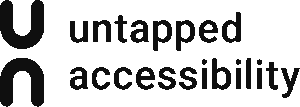
This session is supported by Untapped Accessibility. Untapped Accessibility launched in October 2022 to support BC organizations comply with the Accessible British Columbia Act. A certified social enterprise, they have helped over 180 organizations reach beyond compliance and create more accessible organizations with comprehensive and innovative approaches to disability inclusion. They generate revenue for Open Door Social Services Society, supporting the non-profit’s mission to open doors to lifelong learning and career success for more people with disabilities.
2025-26 Accessibility Bites Series
- Accessibility Bites: Introduction to Web Accessibility, August 28, 2025
- Accessibility Bites: Supporting Post-Secondary Students with ADHD, September 25, 2025
- Accessibility Bites: Let’s Talk about Learning Disabilities, October 30, 2025
- Accessibility Bites: The Gift of Dyslexia, November 27, 2025
- Accessibility Bites: Access Friction, December 11, 2025
- Accessibility Bites: UDL 3.0 in Practice, January 29, 2026
- Accessibility Bites: An Indigenous Lens on Disability Rights, February 26, 2026
For recordings and resources from previous Accessibility Bites workshops, visit the Accessibility Bites Pressbook.

The British Columbia Open Education Community (BCOEC) welcomes members from the post-secondary sector in British Columbia and the Yukon. This community convenes monthly in virtual gatherings, fostering an environment for sharing insights, providing support, and engaging in discussions about the challenges, best practices, and current issues within open education.
Register now!
Recordings and transcripts available from past meetings: B.C. Open Education Community (Playlist)
Session Description
This brief session will offer practical strategies for creating learning environments that support students with ADHD. You’ll learn how to reduce cognitive load to support executive functioning, explore multi-modal teaching methods, and discuss ways to build flexibility without sacrificing accountability. Whether you’re designing a course or working one-on-one with students, you’ll leave with tools to better meet their needs and help them thrive.
Learning Outcomes
- Identify key challenges faced by post-secondary students with ADHD
- Select multi-modal strategies to support diverse attention and learning needs
- Examine course elements that balance flexibility and accountability to promote student success
Schedule
- Introductions and access information – 5 minutes
- Key definitions – 5 minutes
- Overview of multi-modal learning and cognitive load – 10 minutes
- Building in both flexibility and accountability – 5 minutes
- Wrap-up and ongoing learning: access statements – 5 minutes
Register Now!
This notice is to inform you that this session will be recorded, archived, and shared after the event. By participating in this session, you acknowledge that your participation will be recorded and the recording will be made available publicly.
About the Facilitator
Meg Ingram (they/them) is a multiply-disabled accessibility advocate with a passion for project management, planning coordination, and equitable education. Drawing from their background working in both higher education and social services, they have a deep passion for carving out accessible processes and building meaningful relationships within and across sectors. Meg holds an M.A. in Sociology, with a focus in disability studies, from Queen’s University, and a B.A. in Sociology from the University of Victoria.

This session is supported by Untapped Accessibility. Untapped Accessibility launched in October 2022 to support BC organizations comply with the Accessible British Columbia Act. A certified social enterprise, they have helped over 180 organizations reach beyond compliance and create more accessible organizations with comprehensive and innovative approaches to disability inclusion. They generate revenue for Open Door Social Services Society, supporting the non-profit’s mission to open doors to lifelong learning and career success for more people with disabilities.
2025-26 Accessibility Bites Series
- Accessibility Bites: Introduction to Web Accessibility, August 28, 2025
- Accessibility Bites: Supporting Post-Secondary Students with ADHD, September 25, 2025
- Accessibility Bites: Let’s Talk about Learning Disabilities, October 30, 2025
- Accessibility Bites: The Gift of Dyslexia, November 27, 2025
- Accessibility Bites: Access Friction, December 11, 2025
- Accessibility Bites: UDL 3.0 in Practice, January 29, 2026
- Accessibility Bites: An Indigenous Lens on Disability Rights, February 26, 2026
For recordings and resources from previous Accessibility Bites workshops, visit the Accessibility Bites Pressbook.

The British Columbia Open Education Community (BCOEC) welcomes members from the post-secondary sector in British Columbia and the Yukon. This community convenes monthly in virtual gatherings, fostering an environment for sharing insights, providing support, and engaging in discussions about the challenges, best practices, and current issues within open education.
Register now!
Recordings and transcripts available from past meetings: B.C. Open Education Community (Playlist)
Event Description
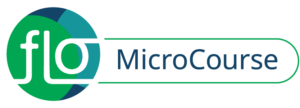 This one-week Facilitating Learning Online (FLO) MicroCourse is designed to help educators and instructional designers bridge the gap between the theory and practice of Universal Design for Learning (UDL) to make learning more equitable and meaningful. Participants will draw on UDL principles to plan and develop assessments, evaluate strategies, and provide constructive feedback on each other’s work. They are also encouraged to incorporate other pedagogical theories alongside UDL. This course is best suited for those with a theoretical understanding of UDL who are ready to explore its practical application in different scenarios and contexts.
This one-week Facilitating Learning Online (FLO) MicroCourse is designed to help educators and instructional designers bridge the gap between the theory and practice of Universal Design for Learning (UDL) to make learning more equitable and meaningful. Participants will draw on UDL principles to plan and develop assessments, evaluate strategies, and provide constructive feedback on each other’s work. They are also encouraged to incorporate other pedagogical theories alongside UDL. This course is best suited for those with a theoretical understanding of UDL who are ready to explore its practical application in different scenarios and contexts.
Learning Outcomes
By the end of the course, participants will be able to:
- Demonstrate the application of UDL principles to make learning environments more equitable
- Apply UDL principles to remove barriers from assessments
- Evaluate the efficacy of UDL principles in removing barriers
Course Logistics
Time commitment: 8–10 hours
Format: Asynchronous
While most of the learning will happen asynchronously, we will offer an optional synchronous session on Tuesday, October 21, 2025, 9:30–10:30 a.m. PST.
Registration Coming Soon
This notice is to inform you that this session will be recorded, archived, and shared with course registrants. By participating in this session, you acknowledge that your participation in this session will be recorded and the recording will be made available to other course participants.
About the Facilitator
Hajime Kataoka (he/him) is an uninvited guest from Kobe, Japan who lives on the traditional territory of Lekwungen and W̱SÁNEĆ peoples. As a Director of Online Learning Services at the Division of Continuing Studies at the University of Victoria, he provides leadership in the advancement of the Division’s online learning strategy.
Session Description
Millions of Canadian learners are affected by learning disabilities, yet these challenges often go misunderstood, leading to poorer educational outcomes and repeated negative experiences. This session will provide a brief overview of learning disabilities, how they commonly show up in classroom settings, and evidence-based strategies for supporting these learners.
Register Now!
This notice is to inform you that this session will be recorded, archived, and shared after the event. By participating in this session, you acknowledge that your participation will be recorded and the recording will be made available publicly.
About the Facilitator
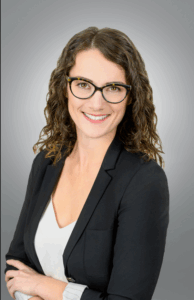
Dr. Jennifer Fane (she/her) is the Lead Research Associate in the Education and Skills knowledge area at The Conference Board of Canada. She holds an interdisciplinary PhD in education, public health, and social policy from Flinders University, South Australia. She started her career as a classroom teacher and has worked as a teacher, professor, and educational researcher in the birth-to-five, K-12, and post-secondary systems in Canada and Australia for over 18 years. Prior to joining the Conference Board, Jennifer was the Director of Education at the Learning Disabilities Society of Greater Vancouver, supporting neurodivergent learners ages three-to-adult across BC. Jennifer brings a passion for translating research into practice to her work at the Board.
This session is supported by The Conference Board of Canada.

The Conference Board of Canada is an independent, not-for-profit research organization whose goal is to equip Canadian leaders and decision makers with the integrated and independent research required to enable them to tackle society’s greatest challenges. This session presents research conducted in partnership with the Future Skills Centre on the neuroinclusivity of Canadian post-secondary education.
2025-26 Accessibility Bites Series
- Accessibility Bites: Introduction to Web Accessibility, August 28, 2025
- Accessibility Bites: Supporting Post-Secondary Students with ADHD, September 25, 2025
- Accessibility Bites: Let’s Talk about Learning Disabilities, October 30, 2025
- Accessibility Bites: The Gift of Dyslexia, November 27, 2025
- Accessibility Bites: Access Friction, December 11, 2025
- Accessibility Bites: UDL 3.0 in Practice, January 29, 2026
- Accessibility Bites: An Indigenous Lens on Disability Rights, February 26, 2026
For recordings and resources from previous Accessibility Bites workshops, visit the Accessibility Bites Pressbook.

The British Columbia Open Education Community (BCOEC) welcomes members from the post-secondary sector in British Columbia and the Yukon. This community convenes monthly in virtual gatherings, fostering an environment for sharing insights, providing support, and engaging in discussions about the challenges, best practices, and current issues within open education.
Register now!
Recordings and transcripts available from past meetings: B.C. Open Education Community (Playlist)

Session Description
A large number of learners think differently than traditional educational methods account for. They are often labelled as having learning disabilities, when in reality, their differences reflect unique strengths, not deficits.
In this session, Sue will share insights from her hands-on experience working with creative, inventive, and highly capable learners who are frequently misunderstood. Educators will gain a deeper understanding of these diverse thinkers and explore ways to better support their unique strengths in educational settings.
Agenda
In this session, we’ll explore:
- The three core components underlying a wide range of learning challenges
- Tools and strategies that help learners overcome these challenges
- How learning challenges can manifest in adult life
- What can be done to prevent or correct these challenges early on
- Practical strategies to support those working with adults who face learning barriers
Register Now!
This notice is to inform you that this session will be recorded, archived, and shared after the event. By participating in this session, you acknowledge that your participation will be recorded and the recording will be made available publicly.
About the Facilitator
Sue Blyth Hall is dyslexic and so is her son. She is a Davis® Facilitator who has been working with children and adults for over twenty-seven years and has never yet found anyone to be learning disabled; some people just learn differently from the way they are taught. She is the Founder of The Whole Dyslexic Society, a TEDx Speaker (2021), Author of Fish Don’t Climb Trees, and producer of the documentary WHO KNEW Dyslexia is a Way of Thinking (2025).
She works with children and adults, who all share the “Gift of Dyslexia” and sees it manifesting in many areas: reading, spelling, paying attention, math, co-ordination, printing, and more. She works tirelessly to improve the understanding and awareness of what dyslexia is, how it arises, ways to correct associated challenges, and even more: ways that these so-called learning disabilities can be prevented.
2025-26 Accessibility Bites Series
- Accessibility Bites: Introduction to Web Accessibility, August 28, 2025
- Accessibility Bites: Supporting Post-Secondary Students with ADHD, September 25, 2025
- Accessibility Bites: Let’s Talk about Learning Disabilities, October 30, 2025
- Accessibility Bites: The Gift of Dyslexia, November 27, 2025
- Accessibility Bites: Access Friction, December 11, 2025
- Accessibility Bites: UDL 3.0 in Practice, January 29, 2026
- Accessibility Bites: An Indigenous Lens on Disability Rights, February 26, 2026
For recordings and resources from previous Accessibility Bites workshops, visit the Accessibility Bites Pressbook.
